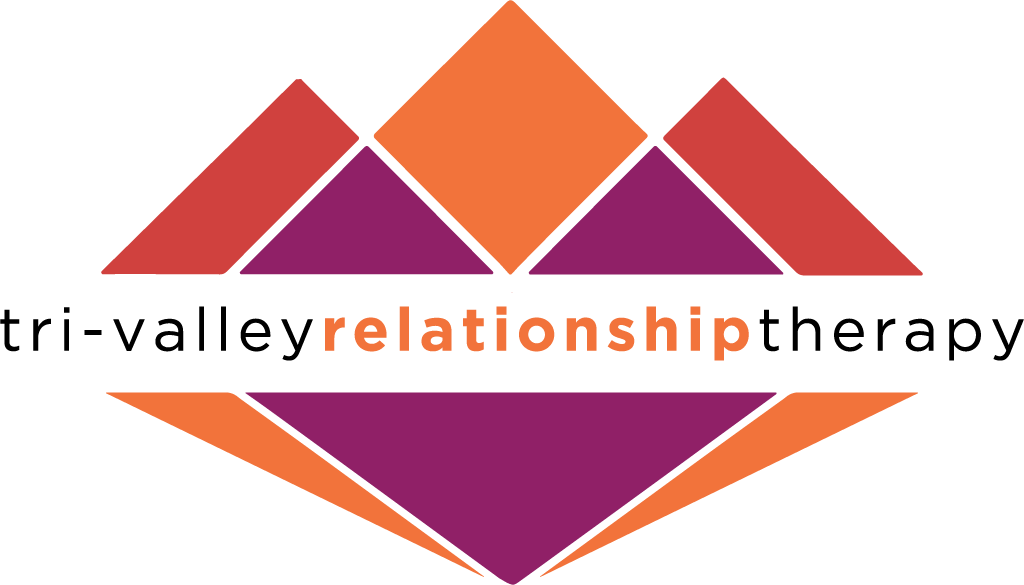Four Bad Reasons For Opening Up Your Relationship
Opening up your relationship for the wrong reasons could have devastating results. Couples counseling at Tri-Valley Relationship Therapy in the East Bay can help you and your partner explore how to open your relationship in order for it to be a rewarding experience.
Open relationships are becoming increasingly common among couples and they are no longer limited to the lifestyles of the rich and famous! The popularity of open relationships is beginning to overshadow the stigma and negative societal stereotypes associated with alternative relationship structures and lifestyles. An open relationship is more likely to succeed if the decision to open up the relationship was made for the right reasons.
However, plenty of people open up for the wrong reasons which often leads to a lot of turmoil, loss of trust, hurt feelings and even the end of the relationship.
Here are 4 common reasons to avoid for opening up a relationship:
- To run away from the problems in your relationship:
This idea is similar to the notion that if a couple is having problems in the relationship, having a baby can help partners recommit to each other. Bringing a child into a rocky relationship tends to make things even rockier. The same goes for bringing a third into an already complicated relationship between two people. Things only get more complicated and messier.
When the primary relationship between two partners is not secure, it is unable to bear the impact of a third person entering the relationship. Also, the problems that existed in the relationship before opening it up get magnified even if both partners are getting their needs met outside of the relationship.
- To cover up an affair you are having already:
Unfortunately, this is a very common but bad reason for opening up a relationship. Having an affair or cheating on your partner is very different from opening up your relationship. The reason being that there is a sense of openness, transparency, and trust embedded in the process of opening up. Both partners have a say and can exercise their choice about keeping the relationship closed. Cheating, on the other hand, does not include informed consent from both partners.
Couples experiencing the trauma of infidelity in their relationship often wonder if opening up the relationship and establishing boundaries would prevent infidelity in the future. There are many different reasons why people in committed relationships cheat on their partners and opening up the relationship is not a fix because people that choose to love many people at the same time do so for completely different reasons. Also, being in an open relationship does not guarantee absolute fidelity. Plenty of people in open relationships cheat on their partners.
- You are no longer into your partner but don’t know how to break up:
Initiating a breakup or divorce is not an easy thing to do. It takes a lot of courage and emotional fortitude to do so in an upfront fashion. At times, people who have lost interest in their partner mistakenly believe that by convincing their partner to open up the relationship to other people, it will make it easier for them to get out of the relationship. The hope is that their partner will fall for someone else which will essentially give them an easy way out.
By opening up a relationship, there is no guarantee that one or both people involved will decide to part ways in favor of the new partners. In fact, by getting involved with new partners, it might make ending the primary relationship much more complicated and painful because your partner could uncover your true intentions behind opening up.
-You want to feel better about yourself:
Sex is a medium through which you feel connected and close to your partner. For some people, sex can also serve another purpose- a boost to their self-esteem. Pre-existing feelings of low self-worth and poor perception of self can lead one to seek limitless sexual connection to alleviate the distress that accompanies such feelings. The connection with the current partner or one partner starts to feel insufficient and the idea of opening up the relationship and gaining access to more partners seems enticing.
The problem with this notion is that the underlying psychological and emotional conflicts causing the low self-esteem are not addressed when sex is used as a quick fix. Because sex is so rewarding not just physically but neurologically as well, it is easy for the brain to form a connection between sex and a temporary reduction in negative feelings. This can lead to a vicious cycle of needing more and more sex to combat persistent and recurring feelings of self-loathing, depression and even anxiety, without addressing the underlying emotional issues causing those feelings in the first place.
https://blogs.psychcentral.com/sex-talk/2018/06/four-bad-reasons-for-opening-up-your-relationship/
Written by: Nagma V. Clark, Ph.D., L.P.C.C. specializing in sex therapy, couples therapy & marriage counseling, premarital counseling, individual relationship therapy & LGBTQQI couples counseling at Tri-Valley Relationship Therapy, Inc. in the East Bay, in Dublin & Oakland.
If you or your partner would like to explore opening up your relationship or need help with a relationship issue or concern, sex therapy & couples counseling at Tri-Valley Relationship Therapy, Inc. in the East Bay can help. Dr. Clark has advanced & specialized training in sex therapy & couples counseling and she has helped many couples & individuals resolve their sexual concerns.
Call 925-400-3541 or email doctor.nvclark@gmail.com to schedule a free 15-minute phone consult or fill out the contact form and you will be contacted within 12-24 hours.

